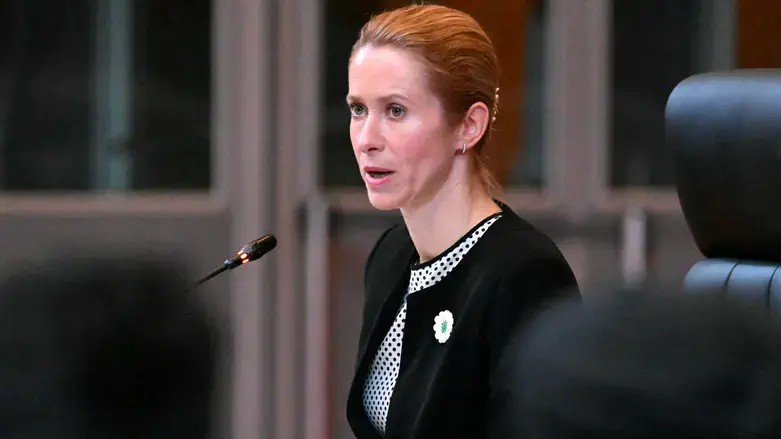
European Union foreign policy chief Kaja Kallas said on Monday that while there have been "good signs" of increased humanitarian aid reaching Gaza, the EU needs to see further improvement on the ground, Reuters reported.
Speaking ahead of a meeting with senior EU and Middle Eastern officials, Kallas referenced an agreement reached between the EU and Israel last week to improve the humanitarian situation. The agreement aims to increase the number of aid trucks, open additional crossing points, and secure certain aid routes into the Gaza Strip.
"We see some good signs of more trucks getting in, more supplies to the people of Gaza, but of course we know that this is not enough, and we need to push more that the implementation of what we have agreed also happens on the ground," Kallas was quoted as having told reporters.
The EU continues to monitor the situation, emphasizing the need for full implementation of the agreed-upon measures to ensure vital supplies reach the civilian population.
Late last week, Kallas said that the European Union is intensifying its efforts to address the deteriorating humanitarian conditions in the Gaza Strip, adding that a range of policy options are under consideration to exert pressure on Israel.
According to Reuters, the EU's diplomatic service formally presented ten potential avenues for political action against Israel to member countries.
A document circulated to EU member nations, reviewed by the news agency, detailed the spectrum of proposed measures. These options include significant steps such as the potential suspension of the EU-Israel Association Agreement, an accord that encompasses crucial trade relations. Lesser, yet still impactful, steps like the temporary halt of technical cooperation projects were also outlined.
Speaking from Kuala Lumpur after discussions with Asian foreign ministers, Kallas underscored that the preparation of these options was a direct response to member states' desire for more robust engagement to alleviate civilian suffering in Gaza.
"Our aim is not to punish Israel in any way," Kallas stated and reiterated the core objective, "Our aim is to really improve the situation on the ground (in Gaza), because the humanitarian situation is untenable."
The EU has been critical of Israel over the humanitarian situation in Gaza. In May, Kallas said the EU would review the EU-Israel Association Agreement in response to what she described as a "catastrophic" situation in Gaza.
Her announcement followed a meeting of the bloc's foreign ministers in Brussels, signaling increased international pressure on the Jewish state.
Last week, Slovakia’s Foreign Minister Juraj Blanár told Foreign Minister Gideon Sa’ar that his country will oppose any European Union proposals aimed at suspending dialogue with Israel.
